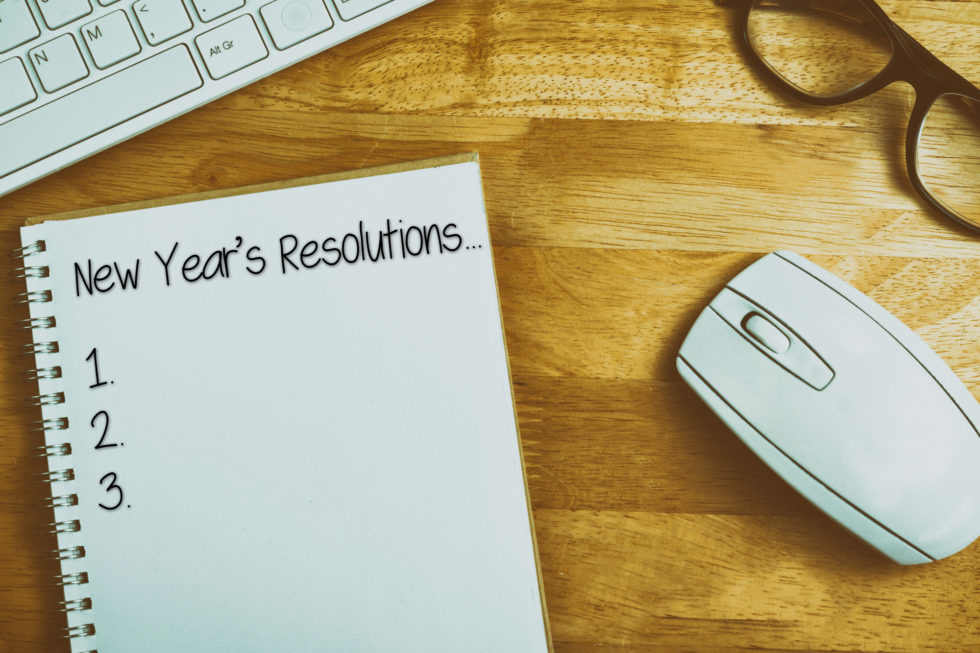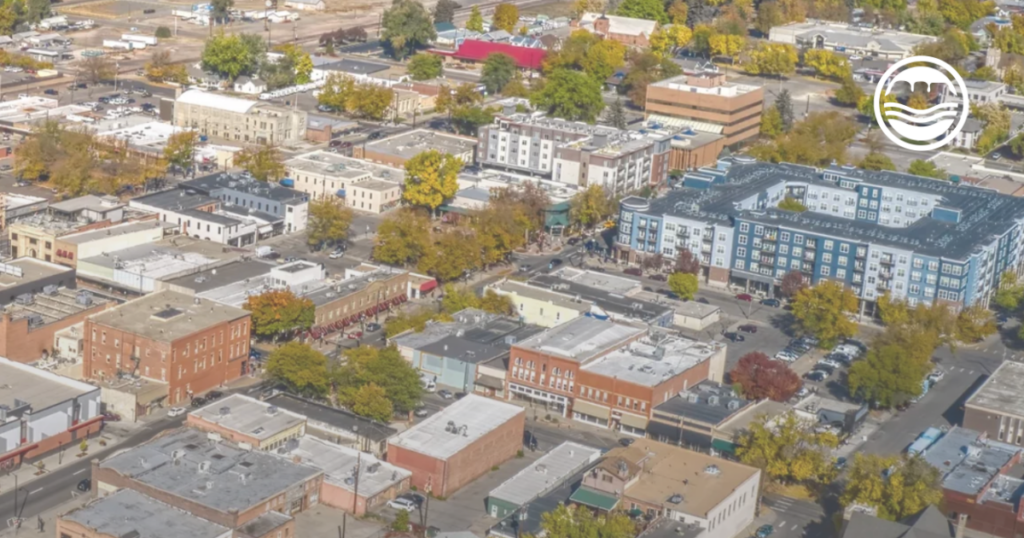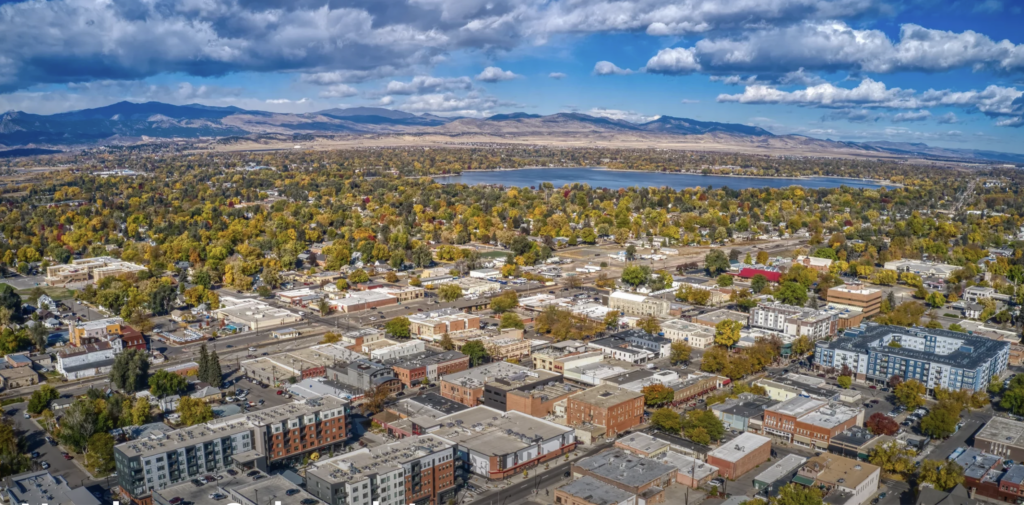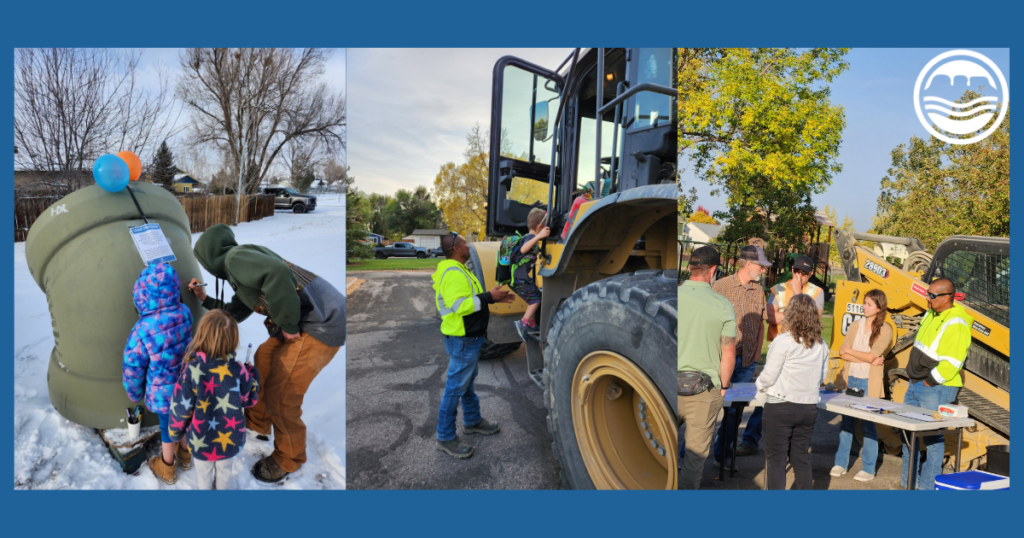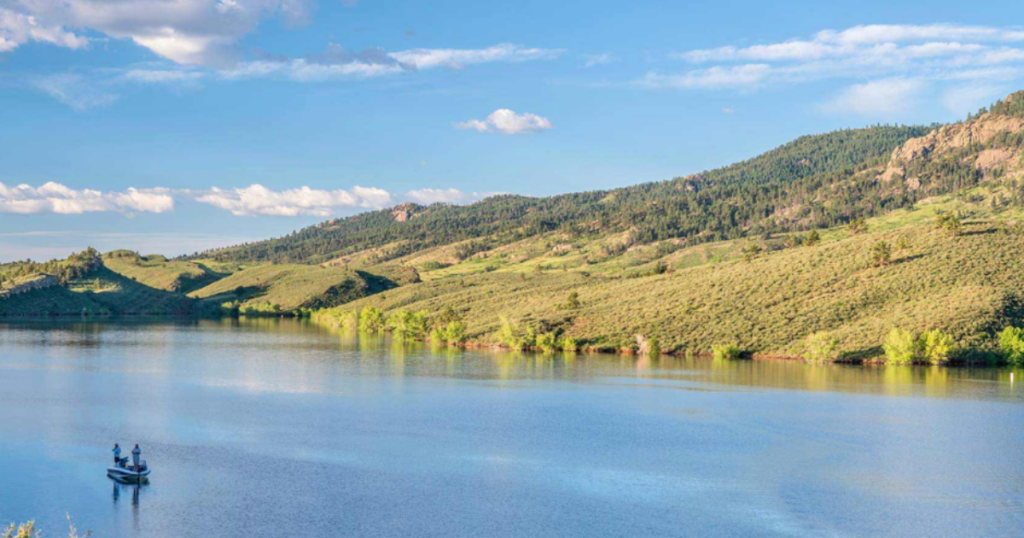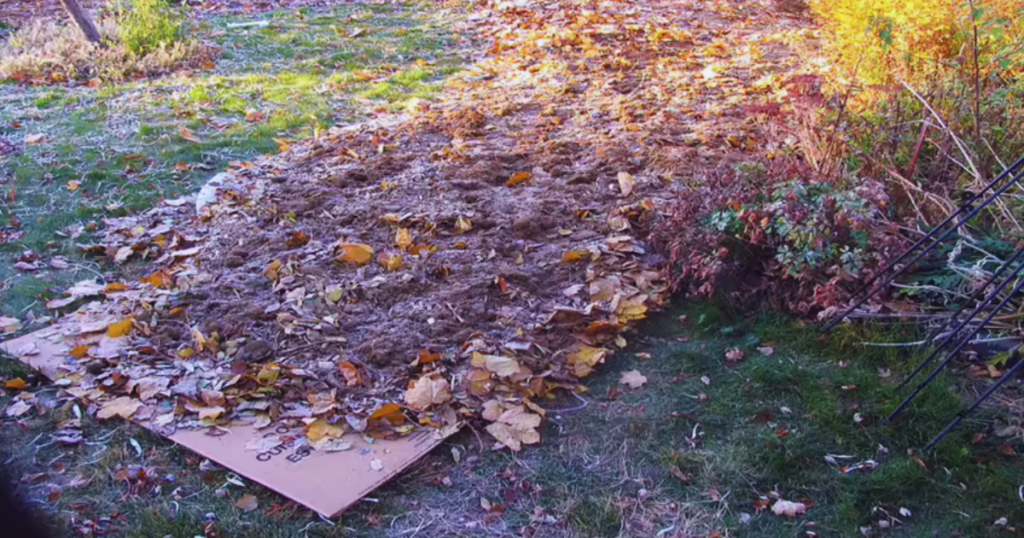New Year’s resolutions are fun in theory: New year, new you. But then the cold morning of January 1 dawns and that drive to a two-hour gym session doesn’t seem nearly as appealing as the warmth under those covers. We may want to look like a Marvel superhero by the end of the year but starting with a commitment to a daily jog is more realistic. Getting into an aspirational mindset is one of the many wonderful things about the New Year, but our lofty goals are often more than we can summit.
According to Harvard Medical School, one of the major keys to keeping a resolution is breaking big dreams into small-enough steps to propel you forward without that daunting sense of feeling overwhelmed. If you’re looking to make an impact this year on the future of water in Northern Colorado, we’ve laid out a few ways you can make a small splash with big impact in 2022—and it’s super easy!
Consider signing up for conservation and committing programs
Did you know that replacing just 100 sq. ft. of lawn with low-water plants can save up to 1,000 gallons of water per year? It’s called xeriscaping and it’s a growing trend in Colorado that’s not only aesthetically pleasing, but it’s also pretty responsible since Colorado is semi-arid land and water demands are increasing in our fast-growing region. Garden in a Box is one easy and fun way you can pitch-in to conserve water. Starting at $111, you’ll find a nice selection of Gardens in a Box to choose for your lawn. From perennials (grown in Brighton, CO) to veggie plants (grown in Denver), the Garden in a Box is a responsible—and potentially flavorful—way to replace your lawn with low-water plants. Even better?
Speaking of conserving, the FCLWD participates in the City of Fort Collins Sprinkler System Checkup program, which encourages customers to “save it, don’t spray it” by getting their sprinklers evaluated for efficiency, leaks and potential water-saving upgrades. It’s free, so you can save money without any investment other than a little time and a bit of personal interest. During the 2022 evaluation, nearly 1.7 million gallons of water were saved—the equivalent of 20 homes’ annual use. You can add to those savings by joining the free program.
Get notified when both programs open their registration this spring by signing up for FCLWD email communications. Send us a note on our contact page to request to be added.
Upgrade with water-wise appliances
More than 450 District customers participated in the Garden in a Box and Sprinkler Audits in 2021, which is encouraging to see, but there are other ways to join in the conservation efforts—or in addition to those.
Another common resolution for the New Year is to finally make those home improvements. Good news: You can upgrade your appliances, save money and conserve water all at the same time. If you’re in the market for an appliance upgrade, look for the EPA-certified WaterSense stickers. WaterSense is a voluntary program organized by the EPA that makes it easy for both manufacturers and consumers to participate in eco-smart initiatives. Appliances labeled with the WaterSense designation will use at least 20-percent less water than standard models.
What types of appliances are available in WaterSense versions? Look for residential toilets, showerheads, bathroom faucets, sprinkler bodies and irrigation controllers.
Try tweaking your water habits
Did you know the District will need an additional 8,000 acre-feet of water to meet the growing service area by 2032? A little education is a powerful tool when it comes to influencing habits, like placing a little card in the guest bathroom sink with surprising water facts such as the one mentioned above. It’s a passive and impactful way to start a conversation and encourage habit changes. However, to take a more active role, try tweaking your own daily water habits. Here are a few easy ideas to get you started:
- Washing clothes and dishes only when the machine is full: Why waste good water on a half-load? Maximize your water value by running those machines only when you have a full load ready to go.
- Limit shower length: A household that keeps showers to under five minutes can save 1,000 gallons per month. Add a WaterSense showerhead to really make an impact.
- Keep a cold pitcher of water in the fridge: If your water doesn’t come out of the tap as cold as you’d like, keep a pitcher in the fridge instead of leaving the water running.
- Turn off water when brushing your teeth. Running water isn’t helping get those pearly whites clean. Leaving the water running is literally pouring water down the drain—and figuratively, money.
Swing by the FCLWD blog for a few more handy water habit ideas.
Caring for your drains
Water conservation doesn’t only involve the mindful use of clean water from the taps. It also involves what we put in the water that goes down the drain and into the recently updated treatment facility. The South Fort Collins Sanitation District (SFCSD) treats water that runs down drains all day, every day. That’s a lot of wastewater with the goal of reclaiming it for safe reintroduction into our waterways. But much like wasteful water consumption practices, there are habits FCLWD/SFCSD customers fall into that inhibit the efficient treatment of wastewater, and negatively impact the future of water use in the District.
The vast majority of those habits surround what we put down the drain. Need a quick reminder of what can’t go down the drain? Just remember FOG, which stands for fats, oils and grease. All of those should be disposed of in receptacles.
All resolutions are one day at a time
If you’ve settled on water conservation as one of your New Year’s resolutions, then you’re setting yourself up for success. That’s because conserving water is a pretty easy task, and it’s something small you can do every day to make a positive impact on the future.
 Skip to content
Skip to content
